| All Artists: Gustav Holst, Ralph Vaughan Williams, Leonard Slatkin, Philharmonia Orchestra of London Title: Holst: The Planets / Vaughan Williams: Fantasia Members Wishing: 0 Total Copies: 0 Label: RCA Release Date: 10/23/2001 Album Type: Original recording remastered Genre: Classical Styles: Historical Periods, Modern, 20th, & 21st Century, Symphonies Number of Discs: 1 SwapaCD Credits: 1 UPC: 743216801824 |
Search - Gustav Holst, Ralph Vaughan Williams, Leonard Slatkin :: Holst: The Planets / Vaughan Williams: Fantasia
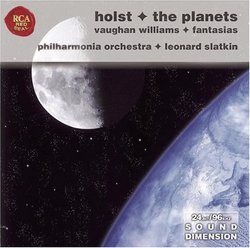 | Gustav Holst, Ralph Vaughan Williams, Leonard Slatkin Holst: The Planets / Vaughan Williams: Fantasia Genre: Classical
|
Larger Image |
CD DetailsSimilar CDs
Similarly Requested CDs
|
CD ReviewsIn Defense of Leonard Slatkin Grady Harp | Los Angeles, CA United States | 03/09/2007 (4 out of 5 stars) "Too often listeners pay little attention to the performances of works conducted by Leonard Slatkin and perhaps it is his earlier connection with lighter veined music that prejudices audiences. But hearing and watching this fine conductor with a great orchestra and basking in the results of his music making can change the approach to his gifts as not only a fine conductor but also as one with the ability to build a large work with solid tension and release. Gustav Holst's THE PLANETS is a work that usually is played in summer festivals on the green, a work too few take seriously. At a recent concert as guest conductor with the Los Angeles Philharmonic in Disney Hall Leonard Slatkin proved that given the right ingredients he is able to make the value of this hugely orchestrated score glow. And perhaps that is what it takes to make The Planets sound like the important work it actually is. When a brilliant orchestra plays in a hall designed to allow every instrument to be heard - harps, celeste, mighty pipe organ, broad percussion team, and wordless women's voices in the ethereal closing Neptune which simply evaporated into the night - there are few aural experiences to match this much maligned work. Would that it had been recorded! On this recording from 2001 Slatkin conducts the Philharmonia orchestra and the performance is solid though not approaching the sublime status of his recent view. It is not that the orchestra is not superb, it is that the recorded sound is not as wisely spatially captured as it could have been. Still, the recording is solid in that Slatkin fully understands the various characters of each of the seven movements and his moments with Saturn and old age are as compellingly touching as any conductor on record. Slatkin also programs the two Vaughn Williams pieces on a CD that would have been better served with different choices. The Greensleeves Fantasia fares less well than the Thomas Tallis homage but both are expertly played - if with a bit a restraint that holds back too much. Grady Harp, March 07" Mediocre G. Metcalf | United States | 10/10/2005 (3 out of 5 stars) "The version of The Planets here is acceptable but not more. The coupling is one of the least desirable I have seen. The fantasia on Greensleaves reminds me of elevator music and the theme of thomas tallis is more interesting but outlasts its welcome. I usually like Vaughn Williams but not in this particular case. I would get my version of Holst's orchestral masterwork elsewhere. I'm just glad I borrowed this from the local library and so can still look elswhere myself." A competent "Planets" to add to the list Santa Fe Listener | Santa Fe, NM USA | 03/10/2007 (3 out of 5 stars) "I can remember when Leonard Slatkin was young and promising, and the media attached themselves to him as the heir to Bernstein as well as the savior of the St. Louis Sym. Now, twenty years later, his unfulfilled potential is sad. He trudges around the world as guest conductor and does a creidtable job with his own National Sym. in Washington D.C., but repeated concerts that I've attended have brought the sense of a musician stuck in middle age, often quite competent but lacking any inspiration. With challenging masterpieces like the Mahler Sixth, which I heard in Chicago, Slatkin can be unfocused, stiff, and discouragingly callow.
The good news is that English music is one of Slatkin's stronger suits, and here we have a very well recorded "Planets" that he conducts with care. Mars starts out thunderously but becomes brash and noisy; Venus is tender without being seductive enough; Jupiter is suitably jolly but feels like a run-through. That's the problem with the performance as a whole: it's well marshalled but nothing special except for the detailed sonics. The Greensleeves Fantasia that follows poses no difficulties for any conductor; it comes off sweetly. In musical terms the major work here is Vaughan Williams' masterful Fantasia on a Theme by Thomas Tallis, which slatkin does quite well. His reading lacks the fervent intensity of Barbirolli's on his famed EMI recording, but he skillfully conveys the music's serentiy and sublime religious feeling. A modest success in a program that is otherwise business as usual." |

 Track Listings (9) - Disc #1
Track Listings (9) - Disc #1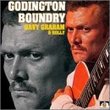




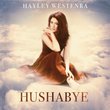

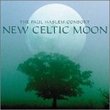
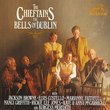

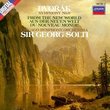

![Talk On Corners [Special Edition]](https://nationalbookswap.com/cd//m/13/7513/397513.jpg)